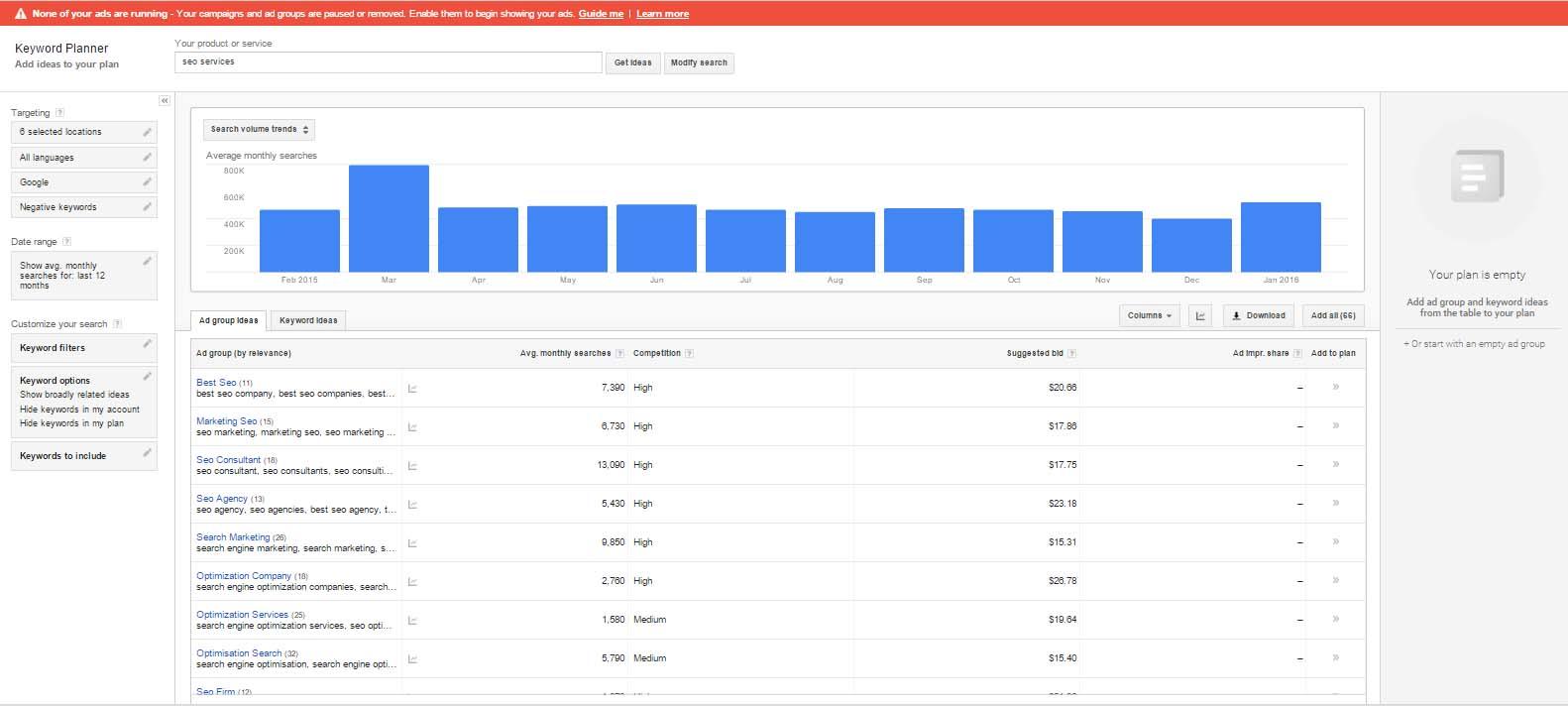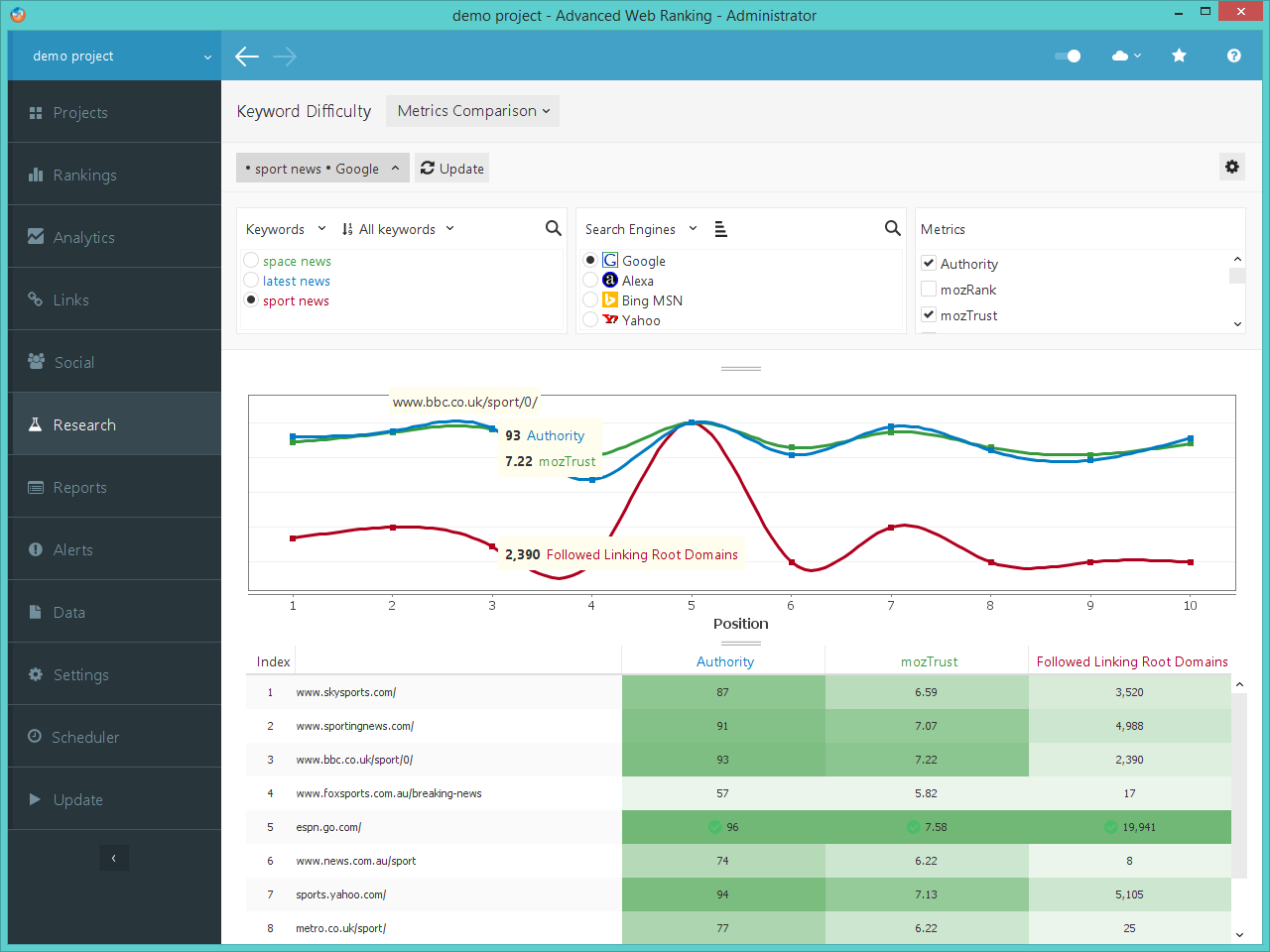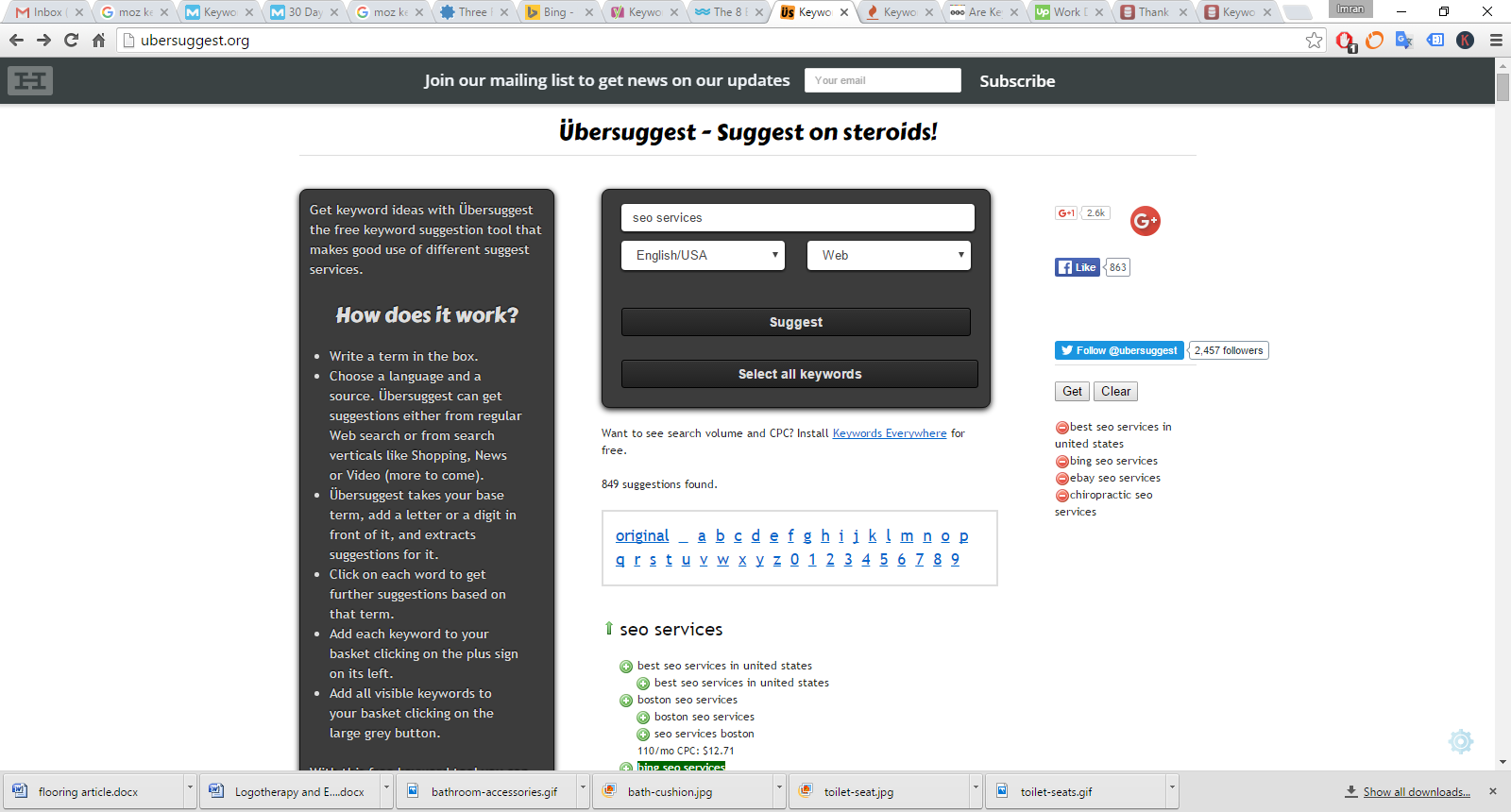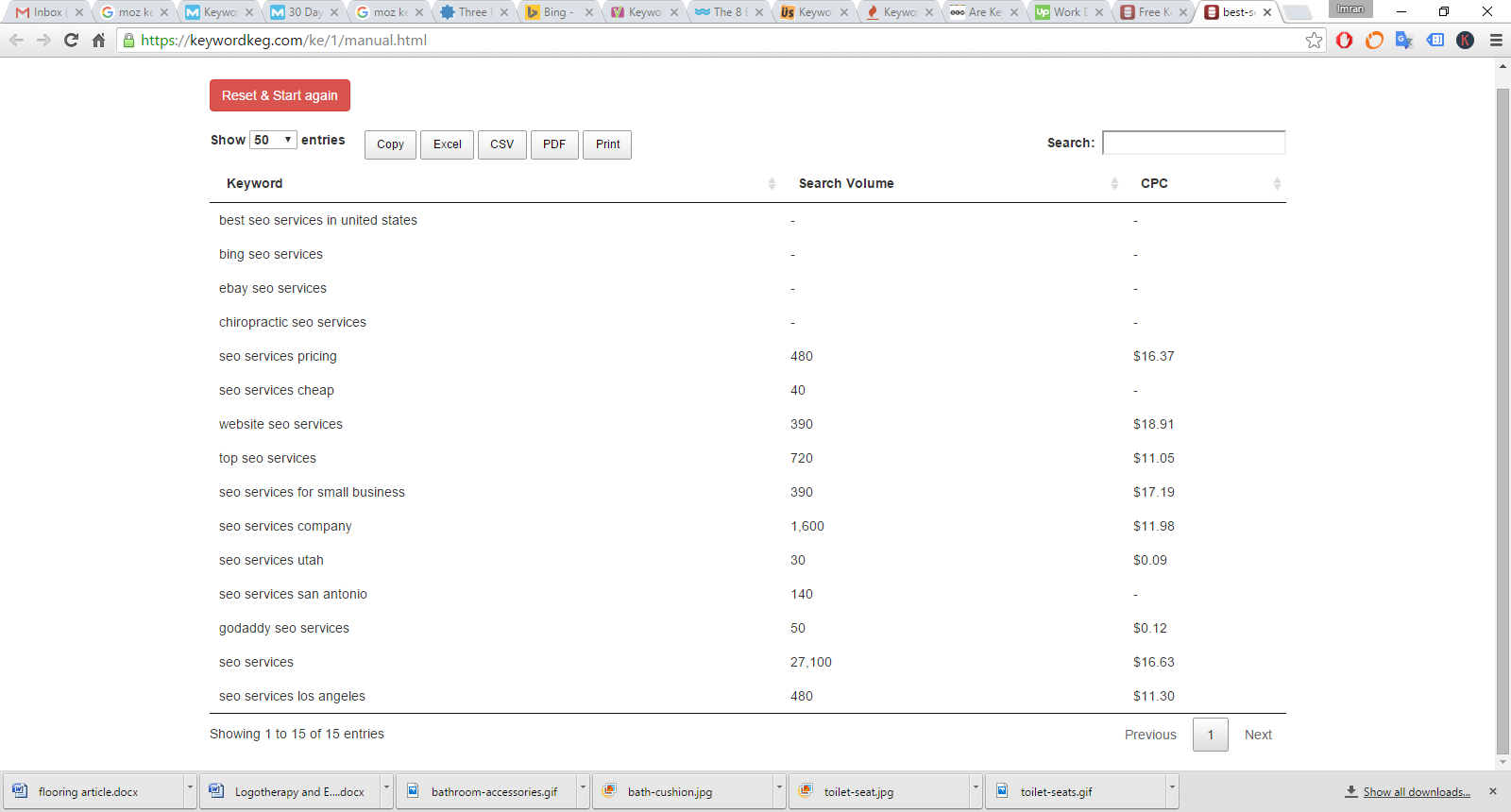Are keywords really so important that even today you need to spend time researching them? The short (and long) answer is yes.
Many SEOs discount the value of keywords as a search signal in today’s ever-evolving world of Algorithms. They argue that Google search is now completely ‘semantic’. In other words, it’s not the exact keywords, but the meanings or the intentions of the search queries that Google uses to rank websites. Others disagree, and I’m one of them. You should not underestimate the value of exact match keywords. That’s not to say I don’t think semantic search is not valuable but as ever, the real answer is that both are important.
How Keywords Help You Get Higher Rankings, Even Today
What are keywords, except just words? Words that your customers use to make searches, and the search engines use to display results. Without words, all search algorithms are blind, at least until computers grow as smart as humans, and a trillion time faster than humans. As that is not likely to happen anytime soon, using an exact keyword in your page title and header is still an important part of working your way to the top of the rankings – at least from an on-page point of view.
Without the correct keywords in your meta data, your page stands less of a chance of appearing among the first page search results. This is the reason why we still see the proper use of keywords on a page give a boost to rankings. This is the reason why we still keep keyword research at the center of SEO and SEM, and this is why you still need to do thorough keyword research. How else will you find out what search terms your customers are using?
There are steps beyond keyword planning by utilize other leading seo tools and tweaking pages based on analytics data. However we’ll start at the most important section, identifying keywords through planning.
Keyword Research and Planning Tools
If search engines have grown smarter over the years, so have the keyword research tools. Today, there are probably more tools available for keyword research and analysis than ever before. But, here are five that you should use.
#1. Google Keyword Planner
This one you’ve probably used a few times, being the holy grail of keyword planning. Many SEOs complain that the ‘new’ Keyword Planner is less helpful than the now dead and buried Google Keyword Tool. But, it’s still the place where most of us start our keyword research, partly because it’s from Google, and partly because it’s free. You just need an Adwords account to start using it.
The Keyword Planner is great for generating keyword ideas, and it throws plenty of keyword suggestions at you, albeit rather haphazardly. It will also tell you the average number of monthly searches and the level of competition for each keyword. However, this is pretty much as far as it goes, unless you’re planning for Adwords. The tool is set to display Adgroup Ideas by default. Click on the ‘Keyword Ideas’ tab to get the keyword suggestions.
The data it provides is not easy to analyze and quite confusing. You can spend hours before the dashboard and still be unsure about the keywords that you should target. The Keyword Planner leaves a lot to be desired from an SEO’s angle, which is probably why there are dozens of third-party tools available to do the job as it should be done.
#2. Keyword Difficulty Tool
Let’s say you’ve selected a keyword because of its high search volume. You spend huge amounts of time and effort to optimize your page for that keyword and do everything right, but still cannot get anywhere near the first page search results. What went wrong? Potentially, hundreds or even thousands of your competitors are also targeting the same keyword and doing as good a job with optimization. So, before your efforts go waste, let’s rewind and use the tool that tells us the right keywords to optimize for. Enter MOZ Keyword Difficulty Tool.
Unlike other research tools on this list, MOZ’s tool extracts the top ten rankings for any keyword, analyzes the pages that are currently ranking, and assigns that keyword a Difficulty Score. This tells you whether the keyword is worth spending your time and efforts. The competitive keyword analysis metrics show you when a competitor is ready to be replaced.
MOZ customers can use this tool as standar. For others, you need to provide your credit card info to start your free one-month trial, which should be more than enough to come out smiling with a list of the right keywords to target.
You could stop reading further if you’ve already used the above tools, because they give you most of what you need. But, if you’re not a MOZ or WordStream customer aor don’t want to provide your credit card info to avail the free trial, the next tool on the list is for you.
#3. Ubersuggest
The best thing about Ubersuggest, next to its simplicity and extensiveness, is that it’s really free. No strings attached. Just start your research with a single keyword, and you’ll be overwhelmed by the number of suggestions Ubersuggest throws at you. (We got 849 suggestions for the keyword ‘seo services’). Click on any of the suggestions to get even more suggestions. The tool also gives you suggestions by adding alphabets (a-to-z) after your base term and displaying keywords that start with those letters. This is an excellent feature for researching long-tail keywords.
You can add keywords to your basket by clicking the plus sign on their left. Click on ‘Get,’ and you get a list of all the keywords that you’ve selected, which you can copy and paste anywhere. Now, you’re probably thinking this list must be useless, because it tells you nothing about the search volumes, but that’s not entirely true.
You can quickly get the search volumes and CPC bids for your selected if you install Keywords Everywhere extension to your Chrome browser (hopefully you’re not using MS Edge). It takes very little time before you can just paste your selected keywords in the Keywords Everywhere app and get the search volume and CPC data.
Ubersuggest is my personal favorite because it makes the keyword research process organized and linear. You can select hundreds of keywords within a few minutes, get their volumes and CPC bids through Keywords Everywhere, and shortlist the most promising ones for further analysis.
#4. WordStream’s Keyword Tool
Pay-per-click management company WordStream has its own free keyword tool, which is more focused and simpler than Google’s tool. It gives you 30 free searches, which should be good enough for an average website. However, you’ll need to try WordStream Advisor to see the complete list, along with search volumes and competition. It stacks keywords by search volumes and gives you actionable suggestions to optimize for the right keywords. You can also refine your research by adding long-tail keywords and other related search terms, and email the keyword list to yourself.
As you would have guessed, most of the features I just mentioned are only available in the paid version. You do have a one week free trial period, so use it the best you can. Like Google’s Keyword Planner, WordStream’s free research tool is also more geared towards PPC. You may also feel there’s something lacking in these tools, and there is. The next tool will show us what.
#5. Google Trends
It seems we’ve come full circle, back to Google again. I don’t know if many people use Google Trends for researching keyword volumes, but I’ve found it very useful for weeding out useless keywords and focusing on what people are actually searching. You can use Google Trends towards the end of your keyword research, to find out if the keywords you have selected drive enough searches to be worthy of your investment.
Enter each of your keywords to find out the actual search volumes and search trends. You can customize the results to see the searches made with that keyword over the past hour, past 4 hours, past day…even past 10 years. If there’s not enough searches being made for a particular keyword you’re planning to target, Google Trends will tell you.
This brings us to the end of our must-use keyword tools, hopefully demonstrating various ways to identify the best keywords for your business in the critical first steps. However it’s also important to consider next steps as part of the early planning and keyword research. Planning and creating the content behind keywords should be factored as well, rather than a scattergun approach which leads to keyword overload. Advice for content creation guidelines and profitable content marketing can be found here.
Regardless of whether or not you use any of these, make sure you’re placing your bids or optimizing your pages for the right keywords. Otherwise, you’ll be wasting time and money.








![Why Do You Need To Optimize Your Marketing Email? [infographic]](https://www.iblogzone.com/wp-content/uploads/2015/12/Email_Marketing_Infographic-150x150.jpg)




